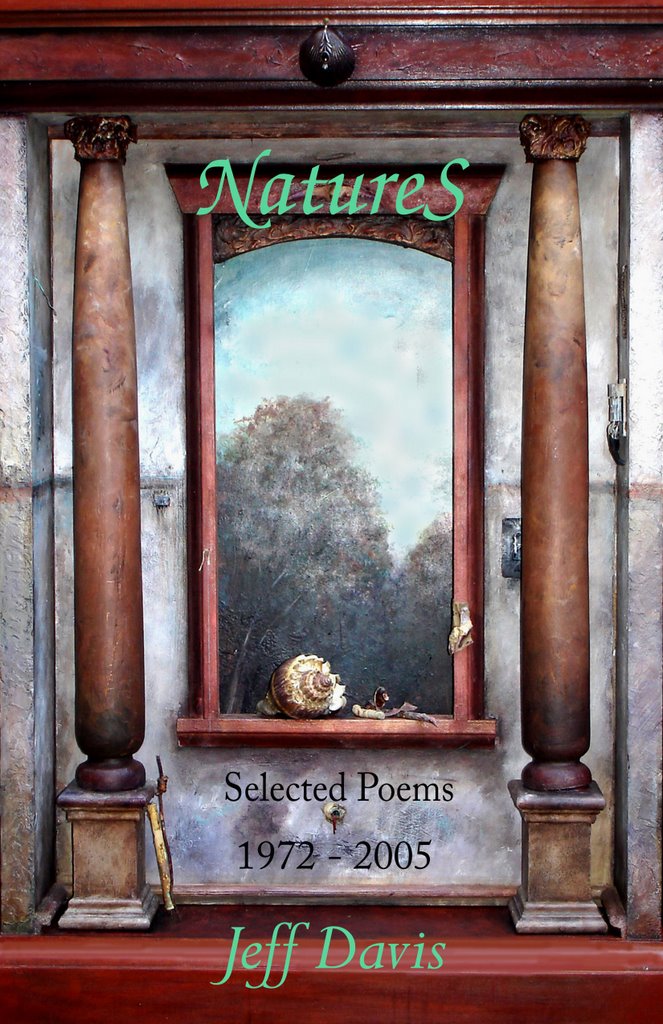Polis Is This: Celebrating the Vision of Charles Olson

Perhaps April is the cruelest month, in T. S. Eliot's antique trope, but in our southern clime, April, with its warmer days, wakes the kingdoms and orders of life that fill our world into the full turbulent florescence of spring. We may still live in Eliot's fallen world, but locally the transformation seems more Chaucerian than Eliotic:
Whan that Aprill with his shoures soote
The droghte of March hath perced to the roote,
And bathed every veyne in swich licour
Of which vertu engendered is the flour ...
The flour buds fill, if they don't yet fully break; birds wing back, bringing their lively songs. And smale foweles maken melodye. Ah, what better season to observe, as we do, National Poetry Month? And this particular April, with the advent of Wordfest 2008, Asheville's first poetry festival in over a decade (and first festival ever of its scope), will certainly bring our fair city bards galore to celebrate the resurgence.
Before Wordfest kicks off on the 24th, though, the long shadow of another poet, a real giant in every sense, one who often foraged through the crammed shelves of the old Pack Library for books to feed his imagination, will once again return to old haunts and flicker for an evening on the silver screen. That poet, of course, would be the one and only Charles Olson.
Olson directed Black Mountain College in its final few years, taught (and taught with) some of the college's gifted poets, and went on to become himself one of the definitive poets of the last century. Next week, on April 17th, filmmaker Henry Ferrini will bring Polis Is This, his fine movie about the man, his vision, his quest, and his legacy, to the Fine Arts Theater.
It's a unique film, in many ways: a documentary, yes, but hardly academic. It feels, instead, deeply personal. Perhaps that's because Henry Ferrini grew up in Gloucester, Massachusetts, where Olson lived much of the time after he left Black Mountain, as the nephew of Vincent Ferrini. Vincent knew Olson, sometimes disagreed with him, but always remained his acknowledged brother in poetry and personal friend. The director came by his interest in Olson honestly, you might say.
Here's what Henry had to say last year about his background in the world of Olson:
All my life I've heard about Charles Olson. As a child around the holiday dinner table I'd listen to tales of a giant who walked the midnight streets of Gloucester, Massachusetts. In school, poets and writers asked if I was related to the Ferrini in The Maximus Poems."Seeing for oneself" became for Olson, as originally for Herodotus, the key to finding actual order in the world - in Olson's case, a world decimated by the Second World War, a war that had brought Europe, theretofore seat of the West's great civilizations, to ruin. It's the historical vision of Olson that makes him unique among poets of the last century or more; he didn't dabble in history, as, say (for all his virtues), his mentor Ezra Pound did. Olson was deeply grounded in it, and had studied it with some of the country's best historians. That grounding helps gives his work deeper ongoing relevance.
Back home in Gloucester, I'd crack the 600 plus page Maximus Poems to learn a little something about myself and my place in this place. I wondered why Jack Kerouac, Allen Ginsberg, Stan Brakhage, Diane di Prima, and Amiri Baraka made pilgrimage to Olson's $29-a-month flat. What was it about this postman's son, a Harvard trained historian, and the power of his imagination, that made a generation of poets and artists see him as "the big fire source."
How and why America's first fishing town became the portal to Olson's world became a mystery to solve. The poet's methodology, one that he borrowed from the Greeks, became my investigative technique as well. 'Istorin means to find out for oneself. It is the root of our word history and it became the route that I followed.
The firm base that Henry Ferrini's movie has in that work makes it an important contribution to the understanding of Olson and his legacy. It's also, of course, beautifully shot, has insightful commentary by those (like Robert Creeley) who knew Olson best, and makes fine use of period footage of Olson himself walking, talking, rambling in Gloucester, the town he chose as his vantage point on the world, and called home.
Ferrini brings his film to Asheville in person, and will be on hand after the showing to discuss it and answer questions - which makes the night a perfect time to leap into one of the great worlds that poetry opens.
What: Polis Is This, Charles Olson and the Persistence of Place
Where: Fine Arts Theater, 38 Biltmore Ave, Downtown Asheville
When: Thursday April 17, 2008, 7:00pm
Info Tickets: $7, members of the Black Mountain College Museum + Arts Center and students with ID, $9 others.
Tickets/Info: (828) 384-5050 or
online at www.blackmountaincollege.org
~~~~~~~~~~~~~~~~~~~~~~~~~~~~~~~~~~~~~~~~
This post appeared in somewhat different form in Rapid River, April, 2008.
Labels: Charles Olson, Henry Ferrini, movies, Polis Is This, RR

0 Comments:
Post a Comment
<< Home